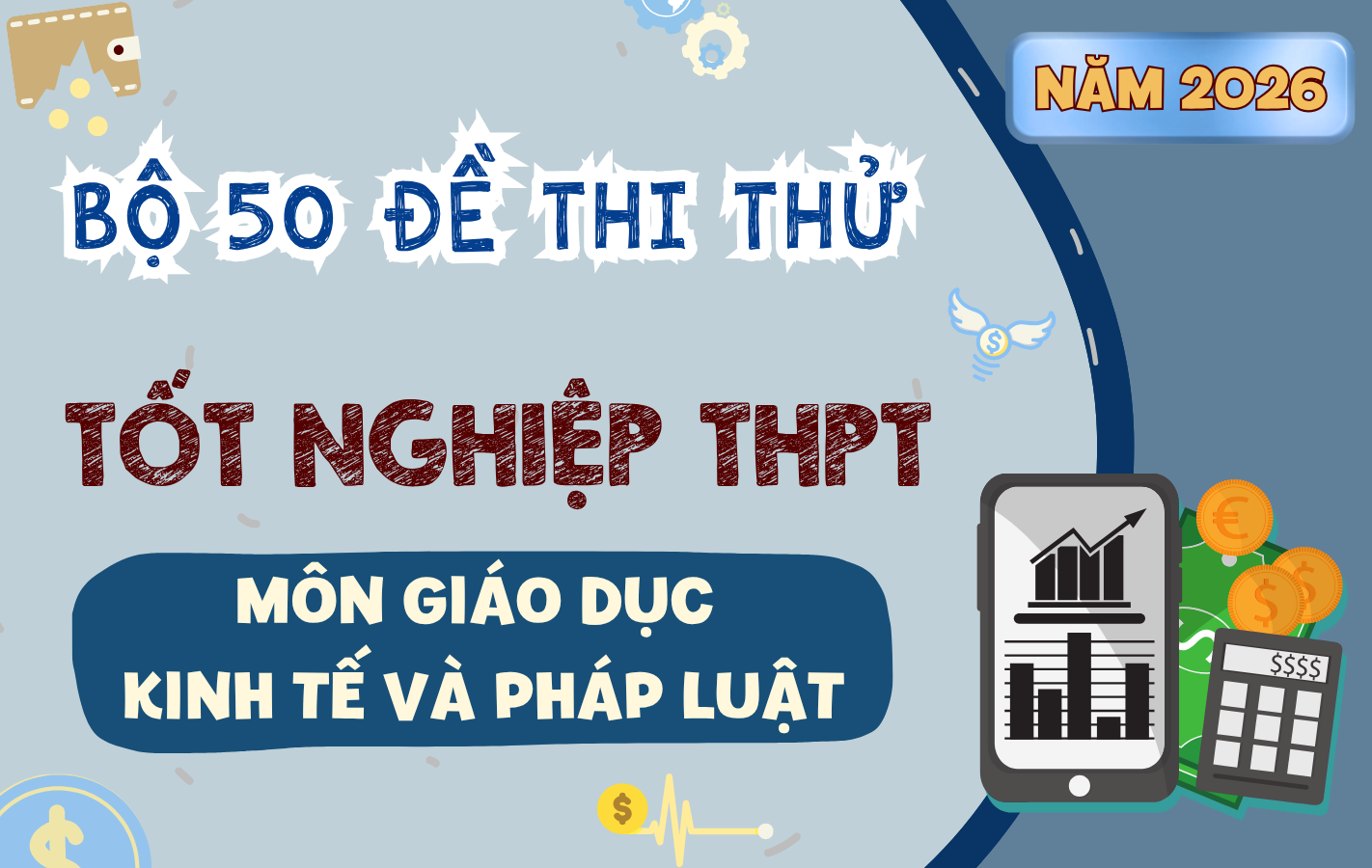Câu hỏi:
Read the following passage about lifelong learning and mark the letter A, B, C, or D on your answer sheet to indicate the best answer to each of the following questions from 31 to 40.
My father was an enthusiastic traveller, but as he got older, he increasingly suffered from what he called “travel fever,” a vivid term for the acute anxiety felt before a journey, essentially due to uncertainty about all the things that could go wrong. Sadly, this eventually stopped him from going on holiday. Then I, too, started to suffer similar apprehension, so I consulted a psychotherapist. She recommended a small piece of cognitive behavioural therapy, which involved acknowledging the mental and physical symptoms of anxiety, but telling myself that these were essentially indistinguishable from feelings of excitement about the prospect of a journey. This reframing of my feelings has been reasonably effective – it’s one way of dealing with uncertainty.
It’s not just the uncertainty of travel that we all have to face. None of us knows what is going to happen, or what is currently going on outside our immediate knowledge, or the vast majority of what has happened in the past. Uncertainty has been called the “conscious awareness of ignorance,” and there is a lot we are ignorant about. We must navigate through life without complete information, and this fundamental uncertainty is an inescapable aspect of human existence.
We all have to live with this uncertainty and, as a statistician, it’s been my job to try to analyse data and assess some of the risks we face. (I)But some deal with uncertainty with more equanimity than others. (II) Psychological studies, as well as our own experience, reveal a wide variation in people’s responses, including those that are cognitive (how we think), emotional (how we feel), and behavioural (what we do). (III)For example, when faced with uncertainty, do you deny it or acknowledge it, does it put the wind up you or make you courageous, do you try to avoid it or approach it?(IV)
Of course, your response may depend on the context, just as an individual’s appetite for risk-taking can vary across different areas of their lives. I have known people who seemed to take huge physical risks, yet were very cautious with money. Numerous scales have been developed to measure how well people can deal with uncertainty, based on responses to statements ranging from “Unforeseen events upset me greatly” to “When it’s time to act, uncertainty paralyses me.” Those who score highly, and find it difficult to tolerate uncertainty, may also be at increased risk of clinically significant anxiety and depression.
The word “vivid” in paragraph 1 is OPPOSITE in meaning to:
Đáp án đúng: A
Đáp án đúng là A
Giải thích:
"Vivid" có nghĩa là rõ ràng, sống động. Nghĩa đối lập sẽ là "yếu ớt" hoặc "không rõ ràng."
A. Feeble không đúng vì "feeble" có nghĩa là “yếu, lờ mờ” => đối lập hoàn toàn với “vivid.”
B. Intense là đồng nghĩa với “vivid,” không phải nghĩa đối lập.
C. remarkable: “đáng kể” =>không phải nghĩa trái ngược phù hợp.
D. crucial : “quan trọng, thiết yếu”, không phải nghĩa trái ngược với “vivid”
Câu hỏi này thuộc đề thi trắc nghiệm dưới đây, bấm vào Bắt đầu thi để làm toàn bài
Bộ đề thi giúp học sinh lớp 12 làm quen với cấu trúc và nội dung đề thi tốt nghiệp THPT môn Tiếng Anh năm 2025. Đề thi được xây dựng theo định hướng của Bộ GD ĐT, bao gồm các phần Ngữ âm, Từ vựng - Ngữ pháp, Chức năng giao tiếp, Kỹ năng đọc hiểu, Kỹ năng viết và Phát âm - Trọng âm. Hệ thống câu hỏi đa dạng, bám sát chương trình học, giúp học sinh rèn luyện kỹ năng làm bài và nâng cao tư duy ngôn ngữ. Đáp án chi tiết đi kèm hỗ trợ học sinh tự ôn tập, đánh giá năng lực và chuẩn bị tốt nhất cho kỳ thi quan trọng.
Câu hỏi liên quan
Read the following passage about lifelong learning and mark the letter A, B, C, or D on your answer sheet to indicate the best answer to each of the following questions from 31 to 40.
My father was an enthusiastic traveller, but as he got older, he increasingly suffered from what he called “travel fever,” a vivid term for the acute anxiety felt before a journey, essentially due to uncertainty about all the things that could go wrong. Sadly, this eventually stopped him from going on holiday. Then I, too, started to suffer similar apprehension, so I consulted a psychotherapist. She recommended a small piece of cognitive behavioural therapy, which involved acknowledging the mental and physical symptoms of anxiety, but telling myself that these were essentially indistinguishable from feelings of excitement about the prospect of a journey. This reframing of my feelings has been reasonably effective – it’s one way of dealing with uncertainty.
It’s not just the uncertainty of travel that we all have to face. None of us knows what is going to happen, or what is currently going on outside our immediate knowledge, or the vast majority of what has happened in the past. Uncertainty has been called the “conscious awareness of ignorance,” and there is a lot we are ignorant about. We must navigate through life without complete information, and this fundamental uncertainty is an inescapable aspect of human existence.
We all have to live with this uncertainty and, as a statistician, it’s been my job to try to analyse data and assess some of the risks we face. (I)But some deal with uncertainty with more equanimity than others. (II) Psychological studies, as well as our own experience, reveal a wide variation in people’s responses, including those that are cognitive (how we think), emotional (how we feel), and behavioural (what we do). (III)For example, when faced with uncertainty, do you deny it or acknowledge it, does it put the wind up you or make you courageous, do you try to avoid it or approach it?(IV)
Of course, your response may depend on the context, just as an individual’s appetite for risk-taking can vary across different areas of their lives. I have known people who seemed to take huge physical risks, yet were very cautious with money. Numerous scales have been developed to measure how well people can deal with uncertainty, based on responses to statements ranging from “Unforeseen events upset me greatly” to “When it’s time to act, uncertainty paralyses me.” Those who score highly, and find it difficult to tolerate uncertainty, may also be at increased risk of clinically significant anxiety and depression.
The word “these” in paragraph 1 refers to:
Đáp án đúng là C
Giải thích:
Trích đoạn: “She recommended a small piece of cognitive behavioural therapy, which involved acknowledging the mental and physical symptoms of anxiety, but telling myself that these were essentially indistinguishable from feelings of excitement about the prospect of a journey.”
(Cô ấy đề xuất một liệu pháp hành vi nhận thức nhỏ, bao gồm việc thừa nhận các triệu chứng lo lắng về mặt tinh thần và thể chất, nhưng tự nhủ rằng về cơ bản, chúng không thể phân biệt được với cảm giác phấn khích về viễn cảnh của một chuyến đi.)
Từ “these” đề cập đến “mental and physical symptoms of anxiety,” vì đây là cụm từ được nhắc tới ngay trước đó.
Read the following passage about lifelong learning and mark the letter A, B, C, or D on your answer sheet to indicate the best answer to each of the following questions from 31 to 40.
My father was an enthusiastic traveller, but as he got older, he increasingly suffered from what he called “travel fever,” a vivid term for the acute anxiety felt before a journey, essentially due to uncertainty about all the things that could go wrong. Sadly, this eventually stopped him from going on holiday. Then I, too, started to suffer similar apprehension, so I consulted a psychotherapist. She recommended a small piece of cognitive behavioural therapy, which involved acknowledging the mental and physical symptoms of anxiety, but telling myself that these were essentially indistinguishable from feelings of excitement about the prospect of a journey. This reframing of my feelings has been reasonably effective – it’s one way of dealing with uncertainty.
It’s not just the uncertainty of travel that we all have to face. None of us knows what is going to happen, or what is currently going on outside our immediate knowledge, or the vast majority of what has happened in the past. Uncertainty has been called the “conscious awareness of ignorance,” and there is a lot we are ignorant about. We must navigate through life without complete information, and this fundamental uncertainty is an inescapable aspect of human existence.
We all have to live with this uncertainty and, as a statistician, it’s been my job to try to analyse data and assess some of the risks we face. (I)But some deal with uncertainty with more equanimity than others. (II) Psychological studies, as well as our own experience, reveal a wide variation in people’s responses, including those that are cognitive (how we think), emotional (how we feel), and behavioural (what we do). (III)For example, when faced with uncertainty, do you deny it or acknowledge it, does it put the wind up you or make you courageous, do you try to avoid it or approach it?(IV)
Of course, your response may depend on the context, just as an individual’s appetite for risk-taking can vary across different areas of their lives. I have known people who seemed to take huge physical risks, yet were very cautious with money. Numerous scales have been developed to measure how well people can deal with uncertainty, based on responses to statements ranging from “Unforeseen events upset me greatly” to “When it’s time to act, uncertainty paralyses me.” Those who score highly, and find it difficult to tolerate uncertainty, may also be at increased risk of clinically significant anxiety and depression.
Which of the following best paraphrases the underlined sentence in paragraph 2?
“Uncertainty has been called the “conscious awareness of ignorance,” and there is a lot we are ignorant about.”
Đáp án đúng là A
Giải thích:
Câu gạch chân: "Uncertainty has been called the 'conscious awareness of ignorance,' and there is a lot we are ignorant about."
Có nghĩa là: Sự không chắc chắn liên quan đến nhận thức rõ ràng về sự thiếu hiểu biết của chúng ta.
A. Diễn đạt lại chính xác nội dung câu gốc.
B. Sai, vì sự thiếu hiểu biết và sự không chắc chắn có liên quan.
C. Sai, vì câu gốc không giới hạn sự không chắc chắn chỉ ở quá khứ hoặc hiện tại.
D. Sai, vì câu này đề cập đến việc bỏ qua sự không chắc chắn, không liên quan đến câu gốc.
Read the following passage about lifelong learning and mark the letter A, B, C, or D on your answer sheet to indicate the best answer to each of the following questions from 31 to 40.
My father was an enthusiastic traveller, but as he got older, he increasingly suffered from what he called “travel fever,” a vivid term for the acute anxiety felt before a journey, essentially due to uncertainty about all the things that could go wrong. Sadly, this eventually stopped him from going on holiday. Then I, too, started to suffer similar apprehension, so I consulted a psychotherapist. She recommended a small piece of cognitive behavioural therapy, which involved acknowledging the mental and physical symptoms of anxiety, but telling myself that these were essentially indistinguishable from feelings of excitement about the prospect of a journey. This reframing of my feelings has been reasonably effective – it’s one way of dealing with uncertainty.
It’s not just the uncertainty of travel that we all have to face. None of us knows what is going to happen, or what is currently going on outside our immediate knowledge, or the vast majority of what has happened in the past. Uncertainty has been called the “conscious awareness of ignorance,” and there is a lot we are ignorant about. We must navigate through life without complete information, and this fundamental uncertainty is an inescapable aspect of human existence.
We all have to live with this uncertainty and, as a statistician, it’s been my job to try to analyse data and assess some of the risks we face. (I)But some deal with uncertainty with more equanimity than others. (II) Psychological studies, as well as our own experience, reveal a wide variation in people’s responses, including those that are cognitive (how we think), emotional (how we feel), and behavioural (what we do). (III)For example, when faced with uncertainty, do you deny it or acknowledge it, does it put the wind up you or make you courageous, do you try to avoid it or approach it?(IV)
Of course, your response may depend on the context, just as an individual’s appetite for risk-taking can vary across different areas of their lives. I have known people who seemed to take huge physical risks, yet were very cautious with money. Numerous scales have been developed to measure how well people can deal with uncertainty, based on responses to statements ranging from “Unforeseen events upset me greatly” to “When it’s time to act, uncertainty paralyses me.” Those who score highly, and find it difficult to tolerate uncertainty, may also be at increased risk of clinically significant anxiety and depression.
Where in paragraph 3 would the following sentence best fit?
"This variation reflects the complexity of human psychology when facing unknown outcomes."
Đáp án đúng là B
Giải thích:
Câu đề cập đến sự biến đổi phản ứng của con người với sự không chắc chắn (những người khác nhau thì đối phó khác nhau), phù hợp với câu trước nó: "But some deal with uncertainty with more equanimity than others." (Nhưng một số người đối phó với sự không chắc chắn một cách bình tĩnh hơn những người khác.")
B. [II] là vị trí phù hợp nhất vì nó bổ sung trực tiếp cho ý này.
Read the following passage about lifelong learning and mark the letter A, B, C, or D on your answer sheet to indicate the best answer to each of the following questions from 31 to 40.
My father was an enthusiastic traveller, but as he got older, he increasingly suffered from what he called “travel fever,” a vivid term for the acute anxiety felt before a journey, essentially due to uncertainty about all the things that could go wrong. Sadly, this eventually stopped him from going on holiday. Then I, too, started to suffer similar apprehension, so I consulted a psychotherapist. She recommended a small piece of cognitive behavioural therapy, which involved acknowledging the mental and physical symptoms of anxiety, but telling myself that these were essentially indistinguishable from feelings of excitement about the prospect of a journey. This reframing of my feelings has been reasonably effective – it’s one way of dealing with uncertainty.
It’s not just the uncertainty of travel that we all have to face. None of us knows what is going to happen, or what is currently going on outside our immediate knowledge, or the vast majority of what has happened in the past. Uncertainty has been called the “conscious awareness of ignorance,” and there is a lot we are ignorant about. We must navigate through life without complete information, and this fundamental uncertainty is an inescapable aspect of human existence.
We all have to live with this uncertainty and, as a statistician, it’s been my job to try to analyse data and assess some of the risks we face. (I)But some deal with uncertainty with more equanimity than others. (II) Psychological studies, as well as our own experience, reveal a wide variation in people’s responses, including those that are cognitive (how we think), emotional (how we feel), and behavioural (what we do). (III)For example, when faced with uncertainty, do you deny it or acknowledge it, does it put the wind up you or make you courageous, do you try to avoid it or approach it?(IV)
Of course, your response may depend on the context, just as an individual’s appetite for risk-taking can vary across different areas of their lives. I have known people who seemed to take huge physical risks, yet were very cautious with money. Numerous scales have been developed to measure how well people can deal with uncertainty, based on responses to statements ranging from “Unforeseen events upset me greatly” to “When it’s time to act, uncertainty paralyses me.” Those who score highly, and find it difficult to tolerate uncertainty, may also be at increased risk of clinically significant anxiety and depression.
Which of the following is NOT mentioned as a factor influencing people’s responses to uncertainty in paragraph 3?
Đáp án đúng là D
Giải thích:
Đoạn 3 đề cập đến ba yếu tố: "cognitive (how we think), emotional (how we feel), and behavioural (what we do)."
D. professional expertise không được nhắc đến trong đoạn văn.
Read the following passage about lifelong learning and mark the letter A, B, C, or D on your answer sheet to indicate the best answer to each of the following questions from 31 to 40.
My father was an enthusiastic traveller, but as he got older, he increasingly suffered from what he called “travel fever,” a vivid term for the acute anxiety felt before a journey, essentially due to uncertainty about all the things that could go wrong. Sadly, this eventually stopped him from going on holiday. Then I, too, started to suffer similar apprehension, so I consulted a psychotherapist. She recommended a small piece of cognitive behavioural therapy, which involved acknowledging the mental and physical symptoms of anxiety, but telling myself that these were essentially indistinguishable from feelings of excitement about the prospect of a journey. This reframing of my feelings has been reasonably effective – it’s one way of dealing with uncertainty.
It’s not just the uncertainty of travel that we all have to face. None of us knows what is going to happen, or what is currently going on outside our immediate knowledge, or the vast majority of what has happened in the past. Uncertainty has been called the “conscious awareness of ignorance,” and there is a lot we are ignorant about. We must navigate through life without complete information, and this fundamental uncertainty is an inescapable aspect of human existence.
We all have to live with this uncertainty and, as a statistician, it’s been my job to try to analyse data and assess some of the risks we face. (I)But some deal with uncertainty with more equanimity than others. (II) Psychological studies, as well as our own experience, reveal a wide variation in people’s responses, including those that are cognitive (how we think), emotional (how we feel), and behavioural (what we do). (III)For example, when faced with uncertainty, do you deny it or acknowledge it, does it put the wind up you or make you courageous, do you try to avoid it or approach it?(IV)
Of course, your response may depend on the context, just as an individual’s appetite for risk-taking can vary across different areas of their lives. I have known people who seemed to take huge physical risks, yet were very cautious with money. Numerous scales have been developed to measure how well people can deal with uncertainty, based on responses to statements ranging from “Unforeseen events upset me greatly” to “When it’s time to act, uncertainty paralyses me.” Those who score highly, and find it difficult to tolerate uncertainty, may also be at increased risk of clinically significant anxiety and depression.
The phrase "put the wind up you" in paragraph 3 could be best replaced by_______
Đáp án đúng là C
Giải thích:
“Put the wind up you" nghĩa là "khiến ai lo lắng hoặc sợ hãi."
C. make you nervous là đáp án đúng, vì nó tương đương về nghĩa.
Read the following passage about lifelong learning and mark the letter A, B, C, or D on your answer sheet to indicate the best answer to each of the following questions from 31 to 40.
My father was an enthusiastic traveller, but as he got older, he increasingly suffered from what he called “travel fever,” a vivid term for the acute anxiety felt before a journey, essentially due to uncertainty about all the things that could go wrong. Sadly, this eventually stopped him from going on holiday. Then I, too, started to suffer similar apprehension, so I consulted a psychotherapist. She recommended a small piece of cognitive behavioural therapy, which involved acknowledging the mental and physical symptoms of anxiety, but telling myself that these were essentially indistinguishable from feelings of excitement about the prospect of a journey. This reframing of my feelings has been reasonably effective – it’s one way of dealing with uncertainty.
It’s not just the uncertainty of travel that we all have to face. None of us knows what is going to happen, or what is currently going on outside our immediate knowledge, or the vast majority of what has happened in the past. Uncertainty has been called the “conscious awareness of ignorance,” and there is a lot we are ignorant about. We must navigate through life without complete information, and this fundamental uncertainty is an inescapable aspect of human existence.
We all have to live with this uncertainty and, as a statistician, it’s been my job to try to analyse data and assess some of the risks we face. (I)But some deal with uncertainty with more equanimity than others. (II) Psychological studies, as well as our own experience, reveal a wide variation in people’s responses, including those that are cognitive (how we think), emotional (how we feel), and behavioural (what we do). (III)For example, when faced with uncertainty, do you deny it or acknowledge it, does it put the wind up you or make you courageous, do you try to avoid it or approach it?(IV)
Of course, your response may depend on the context, just as an individual’s appetite for risk-taking can vary across different areas of their lives. I have known people who seemed to take huge physical risks, yet were very cautious with money. Numerous scales have been developed to measure how well people can deal with uncertainty, based on responses to statements ranging from “Unforeseen events upset me greatly” to “When it’s time to act, uncertainty paralyses me.” Those who score highly, and find it difficult to tolerate uncertainty, may also be at increased risk of clinically significant anxiety and depression.
Which of the following best summarizes paragraph 4?
Read the following passage about lifelong learning and mark the letter A, B, C, or D on your answer sheet to indicate the best answer to each of the following questions from 31 to 40.
My father was an enthusiastic traveller, but as he got older, he increasingly suffered from what he called “travel fever,” a vivid term for the acute anxiety felt before a journey, essentially due to uncertainty about all the things that could go wrong. Sadly, this eventually stopped him from going on holiday. Then I, too, started to suffer similar apprehension, so I consulted a psychotherapist. She recommended a small piece of cognitive behavioural therapy, which involved acknowledging the mental and physical symptoms of anxiety, but telling myself that these were essentially indistinguishable from feelings of excitement about the prospect of a journey. This reframing of my feelings has been reasonably effective – it’s one way of dealing with uncertainty.
It’s not just the uncertainty of travel that we all have to face. None of us knows what is going to happen, or what is currently going on outside our immediate knowledge, or the vast majority of what has happened in the past. Uncertainty has been called the “conscious awareness of ignorance,” and there is a lot we are ignorant about. We must navigate through life without complete information, and this fundamental uncertainty is an inescapable aspect of human existence.
We all have to live with this uncertainty and, as a statistician, it’s been my job to try to analyse data and assess some of the risks we face. (I)But some deal with uncertainty with more equanimity than others. (II) Psychological studies, as well as our own experience, reveal a wide variation in people’s responses, including those that are cognitive (how we think), emotional (how we feel), and behavioural (what we do). (III)For example, when faced with uncertainty, do you deny it or acknowledge it, does it put the wind up you or make you courageous, do you try to avoid it or approach it?(IV)
Of course, your response may depend on the context, just as an individual’s appetite for risk-taking can vary across different areas of their lives. I have known people who seemed to take huge physical risks, yet were very cautious with money. Numerous scales have been developed to measure how well people can deal with uncertainty, based on responses to statements ranging from “Unforeseen events upset me greatly” to “When it’s time to act, uncertainty paralyses me.” Those who score highly, and find it difficult to tolerate uncertainty, may also be at increased risk of clinically significant anxiety and depression.
According to the passage, which of the following statements is TRUE?
Read the following passage about lifelong learning and mark the letter A, B, C, or D on your answer sheet to indicate the best answer to each of the following questions from 31 to 40.
My father was an enthusiastic traveller, but as he got older, he increasingly suffered from what he called “travel fever,” a vivid term for the acute anxiety felt before a journey, essentially due to uncertainty about all the things that could go wrong. Sadly, this eventually stopped him from going on holiday. Then I, too, started to suffer similar apprehension, so I consulted a psychotherapist. She recommended a small piece of cognitive behavioural therapy, which involved acknowledging the mental and physical symptoms of anxiety, but telling myself that these were essentially indistinguishable from feelings of excitement about the prospect of a journey. This reframing of my feelings has been reasonably effective – it’s one way of dealing with uncertainty.
It’s not just the uncertainty of travel that we all have to face. None of us knows what is going to happen, or what is currently going on outside our immediate knowledge, or the vast majority of what has happened in the past. Uncertainty has been called the “conscious awareness of ignorance,” and there is a lot we are ignorant about. We must navigate through life without complete information, and this fundamental uncertainty is an inescapable aspect of human existence.
We all have to live with this uncertainty and, as a statistician, it’s been my job to try to analyse data and assess some of the risks we face. (I)But some deal with uncertainty with more equanimity than others. (II) Psychological studies, as well as our own experience, reveal a wide variation in people’s responses, including those that are cognitive (how we think), emotional (how we feel), and behavioural (what we do). (III)For example, when faced with uncertainty, do you deny it or acknowledge it, does it put the wind up you or make you courageous, do you try to avoid it or approach it?(IV)
Of course, your response may depend on the context, just as an individual’s appetite for risk-taking can vary across different areas of their lives. I have known people who seemed to take huge physical risks, yet were very cautious with money. Numerous scales have been developed to measure how well people can deal with uncertainty, based on responses to statements ranging from “Unforeseen events upset me greatly” to “When it’s time to act, uncertainty paralyses me.” Those who score highly, and find it difficult to tolerate uncertainty, may also be at increased risk of clinically significant anxiety and depression.
Which of the following can be inferred from the passage?
Read the following passage about lifelong learning and mark the letter A, B, C, or D on your answer sheet to indicate the best answer to each of the following questions from 31 to 40.
My father was an enthusiastic traveller, but as he got older, he increasingly suffered from what he called “travel fever,” a vivid term for the acute anxiety felt before a journey, essentially due to uncertainty about all the things that could go wrong. Sadly, this eventually stopped him from going on holiday. Then I, too, started to suffer similar apprehension, so I consulted a psychotherapist. She recommended a small piece of cognitive behavioural therapy, which involved acknowledging the mental and physical symptoms of anxiety, but telling myself that these were essentially indistinguishable from feelings of excitement about the prospect of a journey. This reframing of my feelings has been reasonably effective – it’s one way of dealing with uncertainty.
It’s not just the uncertainty of travel that we all have to face. None of us knows what is going to happen, or what is currently going on outside our immediate knowledge, or the vast majority of what has happened in the past. Uncertainty has been called the “conscious awareness of ignorance,” and there is a lot we are ignorant about. We must navigate through life without complete information, and this fundamental uncertainty is an inescapable aspect of human existence.
We all have to live with this uncertainty and, as a statistician, it’s been my job to try to analyse data and assess some of the risks we face. (I)But some deal with uncertainty with more equanimity than others. (II) Psychological studies, as well as our own experience, reveal a wide variation in people’s responses, including those that are cognitive (how we think), emotional (how we feel), and behavioural (what we do). (III)For example, when faced with uncertainty, do you deny it or acknowledge it, does it put the wind up you or make you courageous, do you try to avoid it or approach it?(IV)
Of course, your response may depend on the context, just as an individual’s appetite for risk-taking can vary across different areas of their lives. I have known people who seemed to take huge physical risks, yet were very cautious with money. Numerous scales have been developed to measure how well people can deal with uncertainty, based on responses to statements ranging from “Unforeseen events upset me greatly” to “When it’s time to act, uncertainty paralyses me.” Those who score highly, and find it difficult to tolerate uncertainty, may also be at increased risk of clinically significant anxiety and depression.
Which of the following best summarizes the main point of the passage?
Read the following paragraph and mark the letter A, B, C, or D on your answer sheet to indicate the option that best fits each of the numbered blanks from 1 to 6.
Attention Residents,
We would like to share some important updates (1)______the rapid urbanisation taking place in our neighborhood. Significant changes have occurred over the past few years, transforming the area(2)______. Many of you may have (3)______attention to the development of high-rise buildings in places where rice fields once stood, reflecting the ongoing urban growth.
The city is expanding, attracting more people to our urban areas, and we are proud to announce the addition of(4)______, a large shopping center, and an abundance of convenience stores on every corner, enhancing the quality of life for our community. Additionally, new electric buses have been introduced, providing a quiet and comfortable ride (5)______all residents.
However, it is important to acknowledge some challenges that come with this growth. Increased traffic jams during rush hours and the rising cost of living are notable concerns that need to be addressed as we continue to develop. We encourage everyone (6)______to these changes while remaining mindful of the balance between convenience and urban challenges.
Thank you for your attention and continued cooperation.
Best regards,
[Community Management Team]

Bộ 50 Đề Thi Thử Tốt Nghiệp THPT Giáo Dục Kinh Tế Và Pháp Luật Năm 2026 – Theo Cấu Trúc Đề Minh Họa Bộ GD&ĐT

Bộ 50 Đề Thi Thử Tốt Nghiệp THPT Lịch Sử Học Năm 2026 – Theo Cấu Trúc Đề Minh Họa Bộ GD&ĐT

Bộ 50 Đề Thi Thử Tốt Nghiệp THPT Công Nghệ Năm 2026 – Theo Cấu Trúc Đề Minh Họa Bộ GD&ĐT

Bộ 50 Đề Thi Thử Tốt Nghiệp THPT Môn Hóa Học Năm 2026 – Theo Cấu Trúc Đề Minh Họa Bộ GD&ĐT

Bộ 50 Đề Thi Thử Tốt Nghiệp THPT Môn Sinh Học Năm 2026 – Theo Cấu Trúc Đề Minh Họa Bộ GD&ĐT

Bộ 50 Đề Thi Thử Tốt Nghiệp THPT Môn Vật Lí Năm 2026 – Theo Cấu Trúc Đề Minh Họa Bộ GD&ĐT
ĐĂNG KÝ GÓI THI VIP
- Truy cập hơn 100K đề thi thử và chính thức các năm
- 2M câu hỏi theo các mức độ: Nhận biết – Thông hiểu – Vận dụng
- Học nhanh với 10K Flashcard Tiếng Anh theo bộ sách và chủ đề
- Đầy đủ: Mầm non – Phổ thông (K12) – Đại học – Người đi làm
- Tải toàn bộ tài liệu trên TaiLieu.VN
- Loại bỏ quảng cáo để tăng khả năng tập trung ôn luyện
- Tặng 15 ngày khi đăng ký gói 3 tháng, 30 ngày với gói 6 tháng và 60 ngày với gói 12 tháng.